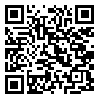Sun, Aug 31, 2025
[Archive]
Volume 4, Issue 4 (Autumn 2018)
JCCNC 2018, 4(4): 223-230 |
Back to browse issues page
Download citation:
BibTeX | RIS | EndNote | Medlars | ProCite | Reference Manager | RefWorks
Send citation to:



BibTeX | RIS | EndNote | Medlars | ProCite | Reference Manager | RefWorks
Send citation to:
Lashgarizad K, Salehi T, Ashghali Farahani M, Haghani H. Investigating Knowledge of Patients Undergoing Total Knee Replacement. JCCNC 2018; 4 (4) :223-230
URL: http://jccnc.iums.ac.ir/article-1-195-en.html
URL: http://jccnc.iums.ac.ir/article-1-195-en.html
1- Department of Nursing, Faculty of Nursing and Midwifery, Iran University of Medical Sciences, Tehran, Iran.
2- Department of Nursing, Faculty of Nursing and Midwifery, Iran University of Medical Sciences, Tehran, Iran. ,salehi.t@iums.ac.ir
2- Department of Nursing, Faculty of Nursing and Midwifery, Iran University of Medical Sciences, Tehran, Iran. ,
Abstract: (2929 Views)
Background: Patients with degenerative knee joint disease may ultimately undergo Total Knee Replacement (TKR) surgery. However, they need enough knowledge about self-care. The current study aimed at determining the knowledge score of patients undergoing TKR.
Methods: The current descriptive, cross sectional study was conducted on 140 patients underwent TKR referring to selected hospitals affiliated to Iran University of Medical Sciences by convenience sampling. Data were collected by Received Knowledge of Hospital Patients (RKHP) and analyzed by descriptive statistics with SPSS V. 19.
Results: The mean total knowledge score was 2.09±0.28 that was close to the average level. Patients got the highest score in financial dimension and the lowest score in ethical dimension.
Conclusion: Knowledge score was higher than average showing inadequate knowledge of patients; however, a comprehensive educational program should be tailored for patients undergoing total knee joint replacement.
Methods: The current descriptive, cross sectional study was conducted on 140 patients underwent TKR referring to selected hospitals affiliated to Iran University of Medical Sciences by convenience sampling. Data were collected by Received Knowledge of Hospital Patients (RKHP) and analyzed by descriptive statistics with SPSS V. 19.
Results: The mean total knowledge score was 2.09±0.28 that was close to the average level. Patients got the highest score in financial dimension and the lowest score in ethical dimension.
Conclusion: Knowledge score was higher than average showing inadequate knowledge of patients; however, a comprehensive educational program should be tailored for patients undergoing total knee joint replacement.
Full-Text [PDF 547 kb]
(1235 Downloads)
| | Full-Text (HTML) (1035 Views)
● The knowledge of patients undergoing total knee replacement is poor.
● Patients got the highest score in the financial dimension and the lowest score in the ethical dimension.
● Managers and nursing staff can help to promote the level of knowledge in such patients by planning and executing regular educational programs.
Plain Language Summary
Patients received the highest knowledge after TKP surgery in the financial dimension and the lowest knowledge in the ethical dimension. It means they needed more training. Nursing managers and nursing staff can help to improve the level of knowledge in such patients by planning and executing regular educational programs and consequently providing the opportunities to improve self-care in the patients.
● Patients got the highest score in the financial dimension and the lowest score in the ethical dimension.
● Managers and nursing staff can help to promote the level of knowledge in such patients by planning and executing regular educational programs.
Plain Language Summary
Patients received the highest knowledge after TKP surgery in the financial dimension and the lowest knowledge in the ethical dimension. It means they needed more training. Nursing managers and nursing staff can help to improve the level of knowledge in such patients by planning and executing regular educational programs and consequently providing the opportunities to improve self-care in the patients.
Type of Study: Research |
Subject:
Special
Received: 2018/05/12 | Accepted: 2018/09/24 | Published: 2018/11/1
Received: 2018/05/12 | Accepted: 2018/09/24 | Published: 2018/11/1
Send email to the article author
| Rights and permissions | |
 |
This work is licensed under a Creative Commons Attribution-NonCommercial 4.0 International License. |






